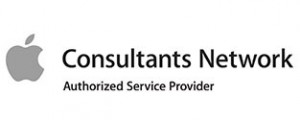The rate of cyber attacks and other cyber security incidents is continuing to rise. Experts have been speculating on which trends will continue to be problematic, and what new threats might lie ahead. Users and developers alike keep making the same mistakes over and over, creating vulnerabilities in the tech world that are tough to overcome. Most of these speculations cover the world of technology as a whole, but we’re going to focus on the issues that have the potential to impact your business.

Fully Automated Digital Extortion
The number of ransomware attacks leveled at businesses has been increasing since 2013. This specific type of malware works by encrypting user data and demanding a ransom fee in exchange for the decryption key. Another nasty type of malicious attack that has been increasing in popularity is doxing, which involves getting a hold of private or sensitive information and broadcasting it over social media or other digital platforms. Doxing typically targets an individual with the goal of humiliating or discrediting them.
As cybercriminals become more adept at using these tactics, there is a very real chance that they could be combined to blackmail or extort individuals to gain access to accounts and data related to their place of employment. And much like traditional forms of blackmail, there is nothing to stop a hacker from repeatedly coming back to make new demands over and over again. Because something like a ransomware infection can be triggered at random using typical phishing tactics, anyone could become a victim of this kind of extortion.
Compromised Smart Home Devices
A growing number of household appliances or other devices are becoming digitally enhanced, allowing users to monitor or activate parts of their home remotely, or having the items themselves interact with or respond to users and the environment. Just about every major manufacturer is getting in on the smart home market, with everything from stoves to light switches available with smart options. But it’s far from a perfect system. Most options are either too expensive or too complicated for typical users, and the bulk of the options available aren’t designed to communicate with devices from other manufacturers.
From a workplace standpoint, options like smart lights or smart thermostats can be picked up from commercial retailers and installed without much hassle. But eagerness from manufactures to make a splash in the marketplace is outweighing smart security decisions, leaving consumers vulnerable to hackers. A breach of your office’s smart thermostat could lead to data theft, high utility costs due to remote tampering with heat or A/C settings, or even damage to hardware caused by extreme temperatures.
Overall Failure of Companies to Perform Adequately in Regards to Security
Poor planning and failure to take the necessary security precautions is an ongoing theme in the world of technological innovations. The number one cause of data breaches and compromised security is the seeming inability of companies and manufacturers to learn from past mistakes and do better. Most, if not all, major security breaches could be prevented with common sense solutions, and thorough stress-testing of security measures.
Some of the most common security screw ups are:
These are all standard security concepts that have been well established, but continue to be underutilized to the detriment of users. Part of the reason this continues to happen is the simple fact that tech enthusiasts are willing to act as beta testers for the chance to get first crack at a new program or device, instead of demanding that suppliers cover their bases and work out all the bugs before allowing a product to go to market.
Compromising Companies Through Employee-Focused Social Engineering Attacks
Business are getting smarter about their IT security, taking the right steps to protect against cyber attacks and being proactive about their security needs. But too often, businesses are still overlooking their biggest security weakness; their staff. Compromised employee credentials are an effective tool for hackers to infiltrate your business’ network, using the foothold provided to work their way deeper into your organization.
As IT infrastructure security continues to become more effective and comprehensive, hackers and scammers are turning their focus more directly towards employees. Your employees are only human, and that makes them susceptible to a whole host of social engineering attacks, like phishing scams, social network hoaxes, false security programs, or even blackmail. It’s much easier to fool a person than a sophisticated security system.
Testing the Security of the Cloud
Cloud computing is essentially just remote virtualization. A cloud provider sets up software, operating systems, or networking solutions that allows you business’ data to be stored on and accessed from servers that the provider maintains on their own premises. The cloud is an amazing tool that has done wonders for the technology landscape, and gives businesses the freedom to do things with their technology that are changing the business world for the better.
But relying on the cloud is not without its risks. Because your data is being stored somewhere outside of the carefully constructed security systems and protocols that protect your onsite infrastructure, you’re forced to rely on the cloud provider to have the same level of security for their own infrastructure.
These providers take the safety of your data very seriously, but the sheer volume of data they’re responsible for -and the businesses and entities that data represents – makes cloud providers a tempting target for hackers. If a breach were to happen to one of these providers, the resulting security compromise would affect dozens, if not hundreds of clients is a very public way. It’s a possibility your business needs to be aware of, as it could directly result in your own clients being compromised.
Technology has been evolving and improving in new and exciting ways for years, and will continue to do so for years to come. Shying away from new technology will do your business more harm than good in the long run. Just be cautious and ask questions before buying new software or hardware. That’s what your IT service provider is here for. Chances are we already know all about the newest options available to you before you even think to ask about it, and will gladly steer you in the right direction.
Have questions about your business’ IT infrastructure security? Contact us at info@clinitech.ca or (416) 291-7377. We’re the trusted IT experts for businesses in Oshawa, Toronto and Southern Ontario.


